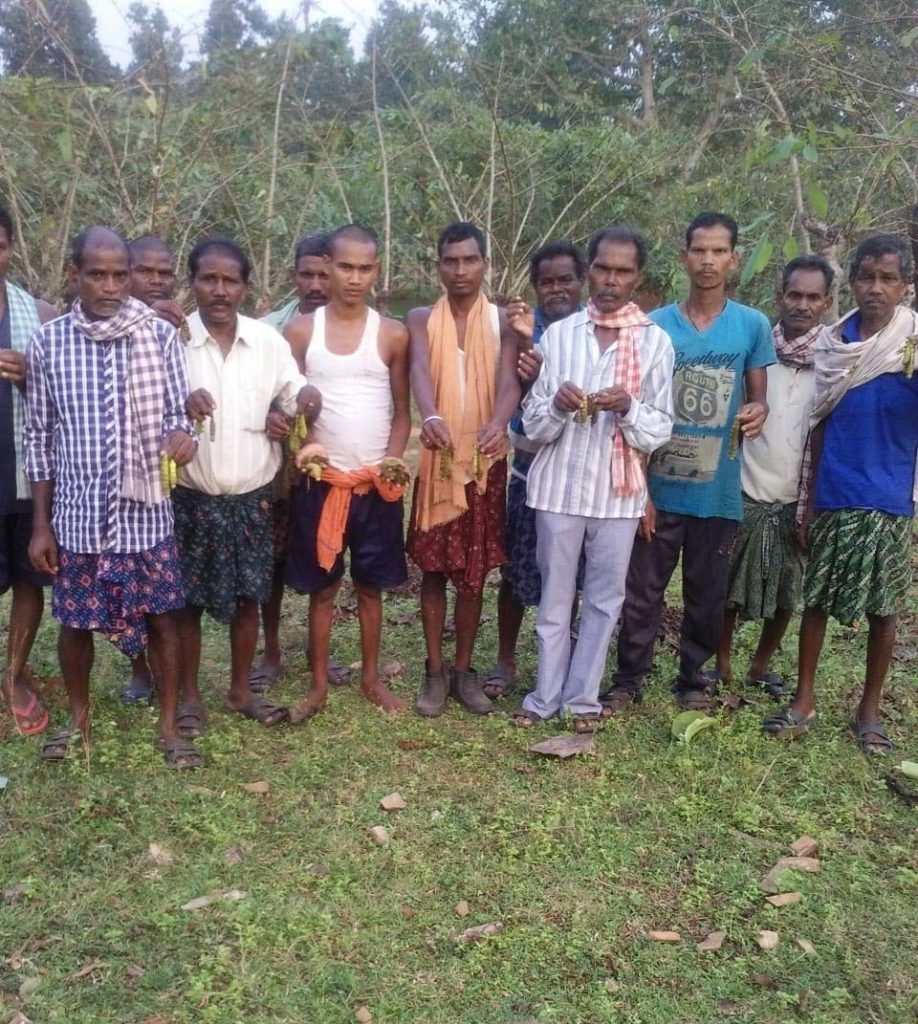Telkoi: Silk farmers in tribal-dominated Telkoi block of Keonjhar district are in distress as the silkworms they were supplied by the government agency have died, a report said. Their activities have taken a big hit.
Reports said about 6,000 silk farmers have been provided with silkworms in Telkoi. However, the farmers in Binjbahal panchayat alleged that all their worms have died and the farming activities are severely affected. It has become a cause of concern for the farmers.
They have taken up the issue with the district silk development department. Farmers added that such situation had cropped up in 2017 too.
“We have complained to the officials concerned but there is no initiative from the official side to alleviate our plight,” a farmer lamented. They demanded compensation for the loss.
Silk farmer Kirtan Bachha said that every year they have been earning Rs 40,000 from silk farming but in the current year they have suffered a great loss.
The silkworms were supplied by Central Tussar office at Jagmohanpur, said farmers Lochan Munda, Bira Munda, Nayan Boita, Bipin Mohant, Nalu Mohant and Milu Mohant.
Tussar development officer at Telkoi, Jiten Kumar Swain, said that these farmers were provided silk worms from Jagmohanpur office and they had a good harvest in 2018. He added that seven SHGs have harvested silk by using worms from the same centre.
However, some farmers have blamed it on bad weather, the officer added. The department will take step in this regard, he concluded.
It may be noted here that geo-climatic condition in most parts of Keonjhar has been conducive to tussar cultivation, but tussar farmers in most cases have been stuck in limbo due to lack of proper government support and monitoring.
According to experts, the mining sector, which was the major job provider for the local populace, has been going through a slump for years, leaving lakhs of people jobless.
Tussar farming is a potential sector that can be tapped fully to create earning opportunities for poor and backward tribals, they said. Locals demanded that the government should come to the rescue of poor tribals and give more thrust on silk farming at this critical juncture. Activation of the sick silk farmers’ cooperative societies would go a long way in achieving this end.
Experts are of the view that a number of tribal-dominated forested pockets under Bansapal, Ghatagaon, Harichandanpur and Telkoi blocks have good geo-climatic conditions but there is an urgent need for infrastructure development in these areas to encourage tribals to take up tussar cultivation.
According to locals, lakhs of rupees are being pumped into plantation of trees like Asana, Arujna and Jamun, apart from funding for revival of societies but a major problem is lack of monitoring the plantations.
Caption
